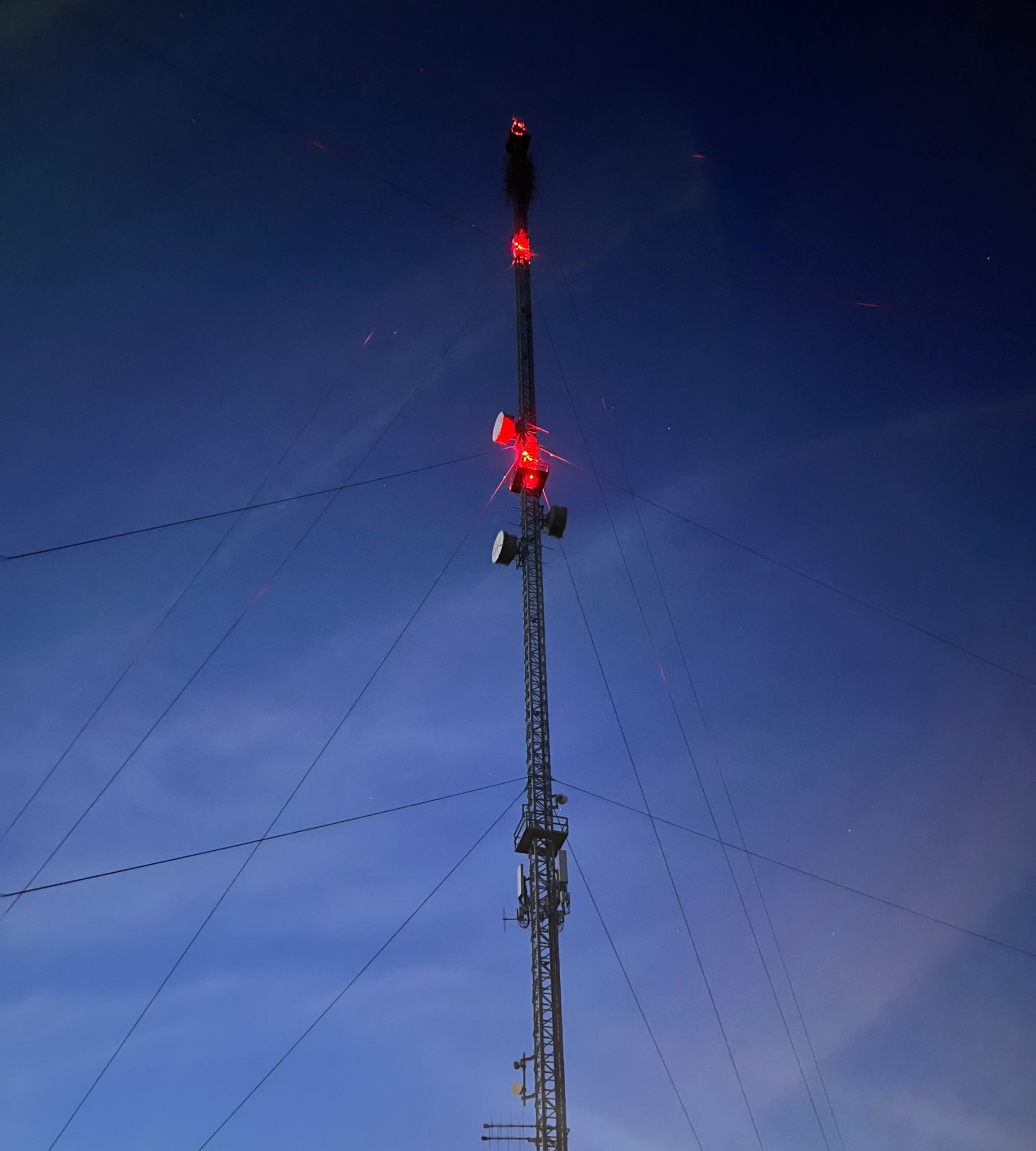Client Overview: Forfar Transmitting Station, located in a remote area, is a critical hub for
telecommunication and broadcasting services. Due to its height and remote location, it
requires reliable aircraft warning lights to ensure aviation safety. Delta, a leading provider of
aircraft warning lights solutions, was contracted to install and maintain warning lights at the
Forfar Transmitting Station.
Project Scope: Delta was tasked with installing six WL3000 aircraft warning lights, a control
panel, two transformers, and the necessary cabling infrastructure from the base to the top of
the transmitting station. The project required meticulous planning and execution due to the
station’s height and the critical nature of its operations.
Challenges Faced:
- Height and Accessibility: The Forfar Transmitting Station’s height posed significant
challenges for installation and maintenance. Delta’s electrician climbers had to
undergo specialized training and adhere to strict safety protocols to work at such
heights. - Remote Location: The station’s remote location added complexity to logistics and
transportation of equipment and personnel. Delta had to ensure timely delivery of
materials and personnel to the site. - Technical Precision: The installation of aircraft warning lights requires precise
alignment and calibration to meet aviation safety standards. Delta’s team of
technicians had to ensure accurate installation and integration of all components.
Solution Implemented: - Specialized Training: Delta provided specialized training to its electrician climbers to
ensure they were equipped with the necessary skills and safety knowledge required
for working at heights. - Logistics Planning: Delta developed a comprehensive logistics plan to ensure timely
delivery of equipment and personnel to the remote site. This included coordinating
with suppliers and transport providers to minimize delays. - Technical Expertise: Delta’s team of technicians meticulously installed the WL3000
aircraft warning lights, control panel, transformers, and cabling infrastructure,
ensuring precise alignment and calibration to meet aviation safety standards.
Outcome: - Enhanced Safety: The installation of Delta’s aircraft warning lights significantly
enhanced aviation safety around the Forfar Transmitting Station, reducing the risk of
collisions with aircraft. - Reliability: Delta’s high-quality equipment and expert installation ensured the
reliable operation of the warning lights, even in challenging weather conditions. - Client Satisfaction: The client expressed satisfaction with Delta’s professionalism,
expertise, and commitment to delivering a high-quality solution despite the project’s
challenges.
Conclusion: The successful installation of six WL3000 aircraft warning lights, along with
associated components, at the Forfar Transmitting Station demonstrates Delta’s capability to
provide reliable and effective aviation safety solutions in demanding environments. Through
specialized training, meticulous planning, and technical expertise, Delta ensured the project’s
success, ultimately contributing to enhanced safety in the airspace surrounding the
transmitting station.



